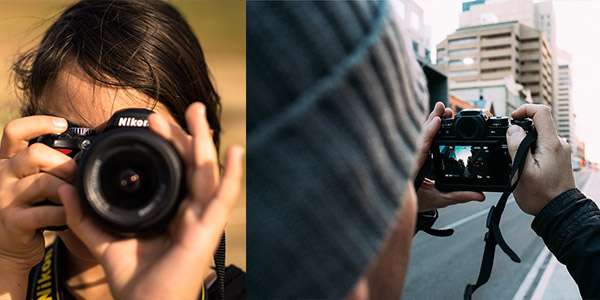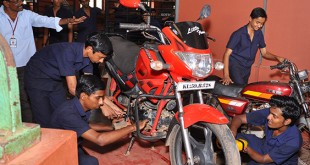ITI In Photographer
Photographer is a photography/media vocational trade. The duration of trade is one year with two semesters of six months each. There are many topics introduced to students in the class such as setting up photographic equipment, taking pictures, editing and retouching images, choosing and setting up locations; reproducing and framing photographs, promoting business in case self-employed, researching and making contacts and general administration regarding photography. Trade is an important one from job point of view as it opens many career options after its clearing successfully.
Skills Required
- Students should have skills like creativity, technical photography skills, patience and concentration.
- They should be able to pay attention to detail; have strong networking skills and team working skills.
- Candidates should have presence of mind and common knowledge about things like image capture, exposure, digital processing, use of filters, composition, lighting-natural, flash and studio.
Nature of Job
- After passing this photography trade successfully, students have good career options in advertising or corporate photography; sports photography and photojournalism; fashion photography.
- They can also work as self-employment for wedding photography, outdoor or wildlife photography, architectural or industrial photography and forensic photography.
- The can also work with agencies, picture libraries, newspapers, magazines, catalogues, advertising agencies, hospitals, medical publishers, museums and art galleries.
Eligibility & Admissions
- Passed 10th class examination with Physics and Chemistry under 10+2 system or its equivalent.
- Performa for admission may be obtained from the respective State Directorate dealing with Craftsmen Training Scheme or from the Principals of the concerned Industrial Training Institutes/ centers conducting training programme under Craftsmen Training Scheme.
Higher Studies
- Advanced Diploma Course in Forensic Photography.
- F.A. (Photography).
Job Prospects
- Over the five years to November 2018, the number of job openings for Photographers is expected to be below average (between 5,001 and 10,000). Job openings can arise from employment growth and people leaving the occupation. Further information about job openings and projected employment growth is available on the Help page.
- Employment for this occupation rose moderately in the past five years and rose very strongly in the long-term (ten years). Looking forward, employment for Photographers to November 2018 is expected to grow moderately.
- This is a medium sized occupation (13,100 in November 2013) suggesting that opportunities may be limited in some regions.
- Photographers have a below average proportion of full-time jobs (60.4 per cent). For Photographers working full-time, average weekly hours are 41.4 (compared to 41.1 for all occupations). Unemployment for Photographers is below average.
- The most common level of educational attainment is Bachelor degree (27.5 per cent).
- Photographers are mainly employed in Professional, Scientific and Technical Services, Other Services and Information Media and Telecommunications.
Employers
Around half the companies in the photo imaging industry are sole trading or freelance photographers, and the majority of these companies employ five people or fewer.
In addition to employers in the fields of press and medical photography, permanent employment is offered by a variety of organisations.
- The police employ photographers to take ‘scene of crime’ and forensic photographs. This work may also incorporate videography and is not for the squeamish. Further details are available from individual police forces. The Ministry of Defence (MoD) also employs qualified photographers.
- Some museums have permanent photographers who catalogue exhibits and contribute to educational materials.
- High street photographers and wedding/social photographers may take on trainees and assistants.
- Commercial studios, which are a significant employer in the industry, are based mainly in London, but there are a few in other large cities.
- Many large organisations, such as businesses, universities, local authorities and charities, employ staff photographers, who may also be involved in audiovisual or marketing work. There is a low level of staff turnover in these types of posts, so vacancies appear infrequently.
- Cruise liners, holiday companies and theme parks employ photographers to provide a social photography service. Work is usually offered on a short-term contract and recruitment is generally handled through an agency.
- Although magazines mainly commission freelance photographers, some also employ permanent staff photographers.
 Courses and Colleges after 10th After 10th, What Next?
Courses and Colleges after 10th After 10th, What Next?








